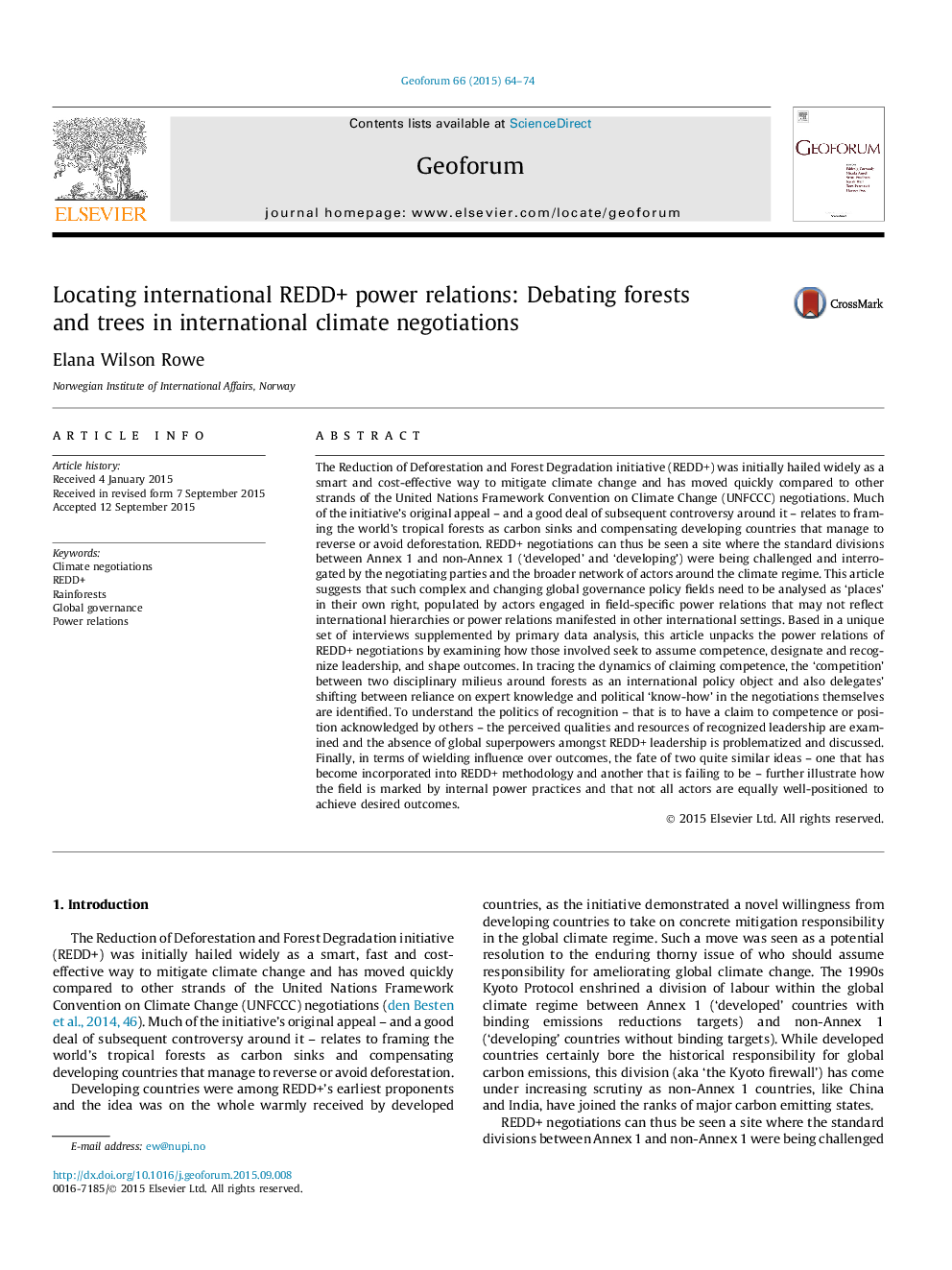| کد مقاله | کد نشریه | سال انتشار | مقاله انگلیسی | نسخه تمام متن |
|---|---|---|---|---|
| 5073596 | 1477123 | 2015 | 11 صفحه PDF | دانلود رایگان |
عنوان انگلیسی مقاله ISI
Locating international REDD+ power relations: Debating forests and trees in international climate negotiations
دانلود مقاله + سفارش ترجمه
دانلود مقاله ISI انگلیسی
رایگان برای ایرانیان
کلمات کلیدی
موضوعات مرتبط
علوم انسانی و اجتماعی
اقتصاد، اقتصادسنجی و امور مالی
اقتصاد و اقتصادسنجی
پیش نمایش صفحه اول مقاله

چکیده انگلیسی
The Reduction of Deforestation and Forest Degradation initiative (REDD+) was initially hailed widely as a smart and cost-effective way to mitigate climate change and has moved quickly compared to other strands of the United Nations Framework Convention on Climate Change (UNFCCC) negotiations. Much of the initiative's original appeal - and a good deal of subsequent controversy around it - relates to framing the world's tropical forests as carbon sinks and compensating developing countries that manage to reverse or avoid deforestation. REDD+ negotiations can thus be seen a site where the standard divisions between Annex 1 and non-Annex 1 ('developed' and 'developing') were being challenged and interrogated by the negotiating parties and the broader network of actors around the climate regime. This article suggests that such complex and changing global governance policy fields need to be analysed as 'places' in their own right, populated by actors engaged in field-specific power relations that may not reflect international hierarchies or power relations manifested in other international settings. Based in a unique set of interviews supplemented by primary data analysis, this article unpacks the power relations of REDD+ negotiations by examining how those involved seek to assume competence, designate and recognize leadership, and shape outcomes. In tracing the dynamics of claiming competence, the 'competition' between two disciplinary milieus around forests as an international policy object and also delegates' shifting between reliance on expert knowledge and political 'know-how' in the negotiations themselves are identified. To understand the politics of recognition - that is to have a claim to competence or position acknowledged by others - the perceived qualities and resources of recognized leadership are examined and the absence of global superpowers amongst REDD+ leadership is problematized and discussed. Finally, in terms of wielding influence over outcomes, the fate of two quite similar ideas - one that has become incorporated into REDD+ methodology and another that is failing to be - further illustrate how the field is marked by internal power practices and that not all actors are equally well-positioned to achieve desired outcomes.
ناشر
Database: Elsevier - ScienceDirect (ساینس دایرکت)
Journal: Geoforum - Volume 66, November 2015, Pages 64-74
Journal: Geoforum - Volume 66, November 2015, Pages 64-74
نویسندگان
Elana Wilson Rowe,